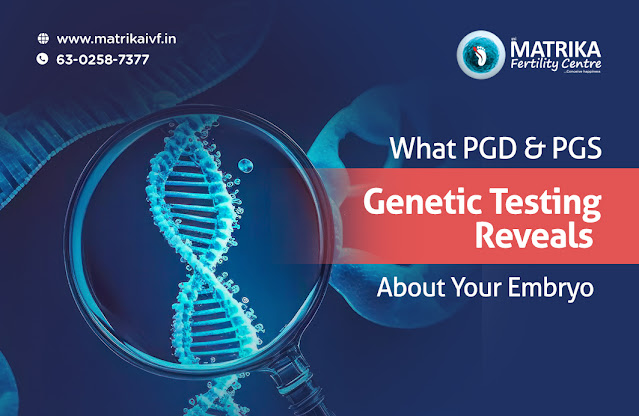Fertility Analysis: The Significance of Menstrual Cycle Length Period
Your Fertility Timeline: Menstrual Cycle Length and Your Fertility Clock
Introduction
For many women, understanding their menstrual cycle and its relationship with fertility clock can be a source of both fascination and concern. Our menstrual cycle is a remarkable biological process that not only plays a crucial role in our reproductive health but also serves as a window into our overall well-being. In this blog, we'll explore the connection between your menstrual cycle length and your fertility, helping you gain a deeper understanding of your unique fertility timeline.
The Menstrual Cycle: A Brief Overview
Before delving into the intricate relationship between your menstrual cycle and fertility, let's establish a basic understanding of what the menstrual cycle is. The menstrual cycle is a natural, recurring process that prepares a woman's body for potential pregnancy. On average, it lasts about 28 days, but variations are common, and cycles can range from 21 to 35 days or even longer. It's important to note that menstrual cycle length can vary greatly from one individual to another, and that's completely normal.
The menstrual cycle is divided into four main phases:
Menstruation: This is the bleeding phase when the lining of the uterus sheds, and it typically lasts 3-7 days.
Follicular Phase: This phase begins on the first day of your period and can last up to two weeks. It involves the development of follicles in the ovaries, which house immature eggs. One of these follicles will eventually mature into the dominant one that releases an egg during ovulation.
Ovulation: Ovulation typically occurs around the middle of the menstrual cycle, usually between days 14 and 16, but it can vary. During this phase, the mature egg is released from the ovary and is available for fertilization.
Luteal Phase: Following ovulation, the empty follicle transforms into the corpus luteum, a temporary endocrine structure that releases hormones like progesterone. The luteal phase usually lasts for about 14 days and is crucial for maintaining a potential pregnancy.
Menstrual Cycle Length and Fertility
Now that we have a foundational understanding of the menstrual cycle, let's explore how menstrual cycle length can affect your fertility.
Short Menstrual Cycles (Less than 21 Days)
A short menstrual cycle is one that lasts less than 21 days. This can be a cause for concern as it may indicate underlying health issues that could impact fertility. A short cycle may not provide the uterus with enough time to prepare a suitable environment for a fertilized egg to implant. It can be a sign of conditions like polycystic ovary syndrome (PCOS), a hormonal imbalance, or inadequate luteal phase, all of which can make it more challenging to conceive.
Normal Menstrual Cycles (Around 21-35 Days)
A typical menstrual cycle that falls within the 21-35 day range is generally considered healthy. In such cycles, there's enough time for the body to prepare for pregnancy, and ovulation is more predictable. However, if you're trying to conceive and it's taking longer than expected, a cycle within this range does not necessarily guarantee immediate success. Other factors, such as the quality of eggs and sperm, overall health, and lifestyle, also play a crucial role in fertility.
Long Menstrual Cycles (Over 35 Days)
Long menstrual cycles, typically exceeding 35 days, can also present challenges for fertility. An extended cycle may indicate irregular or infrequent ovulation, which can reduce the chances of getting pregnant. Long cycles can be linked to conditions like polycystic ovary syndrome (PCOS), thyroid disorders, or hormonal imbalances. If you have consistently long cycles and are struggling to conceive, it's advisable to consult a healthcare professional for a thorough evaluation.
Ovulation and Fertility: The Key to Conception
Ovulation is the pivotal phase in the menstrual cycle when an egg is released from the ovary and can potentially be fertilized by sperm. Understanding when you ovulate is crucial for those trying to conceive. Here are some key points to consider:
Ovulation Prediction: The timing of ovulation can vary from one woman to another and can even fluctuate within the same woman's cycles. Various methods can help predict ovulation, including monitoring changes in cervical mucus, using period tracker, and tracking basal body temperature. These methods can provide valuable insights into your unique fertility pattern.
Window of Fertility: While ovulation is a critical moment, the fertile window is not limited to just that day. Sperm can survive in the female reproductive tract for several days, so having intercourse in the days leading up to ovulation can also result in pregnancy. On average, the fertile window may extend from five days before ovulation to the day of ovulation itself.
Regularity: A regular menstrual cycle with predictable ovulation cycle can simplify the process of trying to conceive. If you experience irregular cycles, it can be more challenging to pinpoint your fertile window. Irregular cycles may be associated with underlying health issues, so seeking medical advice is advisable.
Managing Your Fertility Timeline
If you're actively trying to conceive, there are several steps you can take to manage your fertility timeline effectively:
Track Your Cycle: Start by keeping a menstrual cycle diary to record the start and end dates of your periods, as well as any notable symptoms like changes in cervical mucus or breast tenderness. Many apps are available that can help you track your cycles and predict ovulation based on your input.
Monitor Ovulation: As mentioned earlier, understanding when you ovulate is key to maximizing your chances of conception. Ovulation predictor kits, monitoring basal body temperature, and observing changes in cervical mucus can all be useful tools for tracking ovulation.
Maintain a Healthy Lifestyle: A balanced diet, regular exercise, and proper stress management can all positively impact your reproductive health. It's essential to maintain a healthy body weight as both obesity and being underweight can affect fertility. Additionally, avoid smoking and excessive alcohol consumption, which can harm your chances of conception.
Seek Medical Advice: If you've been actively trying to conceive for an extended period without success, consider consulting a healthcare professional or a fertility specialist. They can perform diagnostic tests and offer guidance to address any underlying issues.
Conclusion
Understanding your menstrual cycle and its connection to fertility clock can be an empowering journey. While menstrual cycle length can vary significantly among individuals, there's no one-size-fits-all approach to fertility. What's most important is recognizing your own unique pattern and taking steps to optimize your chances of conception. Remember that fertility is influenced by a multitude of factors, so patience and persistence are key when embarking on the path to parenthood. By monitoring your menstrual cycle, pinpointing ovulation, and maintaining a healthy lifestyle, you can take charge of your fertility timeline and increase your chances of fulfilling your dreams of becoming a parent.



Comments
Post a Comment